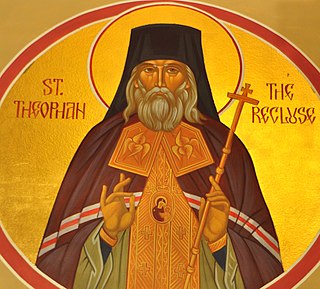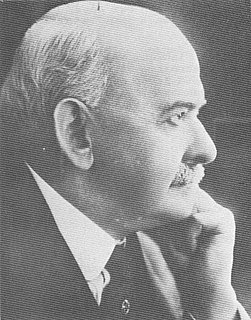A Quote by Aiden Wilson Tozer
The Cross is not responsible for God's love; rather it was His love that conceived the Cross.
Quote Topics
Related Quotes
A cross borne in simplicity, without the interference of self-love to augment it, is only half a cross. Suffering in this simplicity of love, we are not only happy in spile of the cross, but because of it; for love is pleased in suffering for the Well Beloved, and the cross which forms us into His image is a consoling bond of love.
Jesus on the cross feels the whole weight of the evil, and with the force of God's love he conquers it; he defeats it with his resurrection. This is the good that Jesus does for us on the throne of the cross. Christ's cross, embraced with love, never leads to sadness, but to joy, to the joy of having been saved and of doing a little of what he did on the day of his death.
When we look at the cross we see the justice, love, wisdom and power of God. It is not easy to decide which is the most luminously revealed, whether the justice of God in judging sin, or the love of God in bearing the judgment in our place, or the wisdom of God in perfectly combining the two, or the power of God in saving those who believe. For the cross is equally an act, and therefore a demonstration, of God’s justice, love, wisdom and power. The cross assures us that this God is the reality within, behind and beyond the universe.
In the Cross is salvation; in the Cross is life; in the Cross is protection against our enemies; in the Cross is infusion of heavenly sweetness; in the Cross is strength of mind; in the Cross is joy of spirit; in the Cross is excellence of virtue; in the Cross is perfection of holiness. There is no salvation of soul, nor hope of eternal life, save in the Cross.
Men point to the sad incidents of human life on earth, and they ask "Where is the love of God?" God points to that Cross as the unreserved manifestation of love so inconceivably infinite as to answer every challenge and silence all doubt for ever. And that Cross is not merely the public proof of what God has accomplished; it is the earnest of all that He has promised.
Remember that each of us has his own cross. The Golgotha of this cross is our heart: it is being lifted or implanted through a zealous determination to live according to the Spirit of God. Just as salvation of the world is by the Cross of God, so our salvation is by our crucifixion on our own cross.
What we see at the cross is the white-hot revelation of the character of God, of his love providing the price that holiness requires. The cross was his means of redeeming lost sinners and reconciling them to himself, but it was also a profound disclosure of his mercy. It is, in Paul’s words, an ‘inexpressible gift’ that leads us to wonder and worship, to praise and adore the God who has given himself to us in this way.
To some, the image of a pale body glimmering on a dark night whispers of defeat. What good is a God who does not control his Son's suffering? But another sound can be heard: the shout of a God crying out to human beings, "I LOVE YOU." Love was compressed for all history in that lonely figure on the cross, who said that he could call down angels at any moment on a rescue mission, but chose not to - because of us. At Calvary, God accepted his own unbreakable terms of justice. Any discussion of how pain and suffering fit into God's scheme ultimately leads back to the cross.
The love for our enemies takes us along the way of the cross and into fellowship with the Crucified. The more we are driven along this road, the more certain is the victory of love over the enemy's hatred. For then it is not the disciple's own love, but the love of Jesus Christ alone, who for the sake of his enemies went to the cross and prayed for them as he hung there.
The spot where God's triumph is achieved, God's victory over sin, over lawlessness, is the cross of Calvary- the cross on which the Son of God died. In that cross and through the cross the works of the devil were destroyed, and the One who conquered him is yet to bruise the serpent's head in the final triumph when He comes again, as recorded in prophecy.
At the cross in holy love God through Christ paid the full penalty of our disobedience himself. He bore the judgment we deserve in order to bring us the forgiveness we do not deserve. On the cross divine mercy and justice were equally expressed and eternally reconciled. God's holy love was 'satisfied.'
We are commanded to love God with all our strength, heart, mind and soul and our neighbor in the same way God loves us - it is the same love flowing between God and the soul - the soul and its neighbor. It is difficult, but the burden of the cross is light compared to the cross of uncontrolled emotions, anger, insistence on one's own opinion, the frustration of trying to change others rather than being changed oneself, resentment, regrets and guilt. Accepting the present moment like Jesus did is certainly a lighter burden.
Accommodation is a central aspect of the cross-centered interpretation of violent portraits of God that I'm advocating. Like everything else in Cross Vision, this concept is anchored in the cross. On the cross, God stoops to meet us, and to enter into solidarity with us, right where we are at, which is in bondage to sin and to Satan. And he does this to free us and to bring us where he wants us to be, which is united with him in Christ. The cross is thus the paradigmatic example of God mercifully stooping to accommodate people in their fallen conditioning.



































